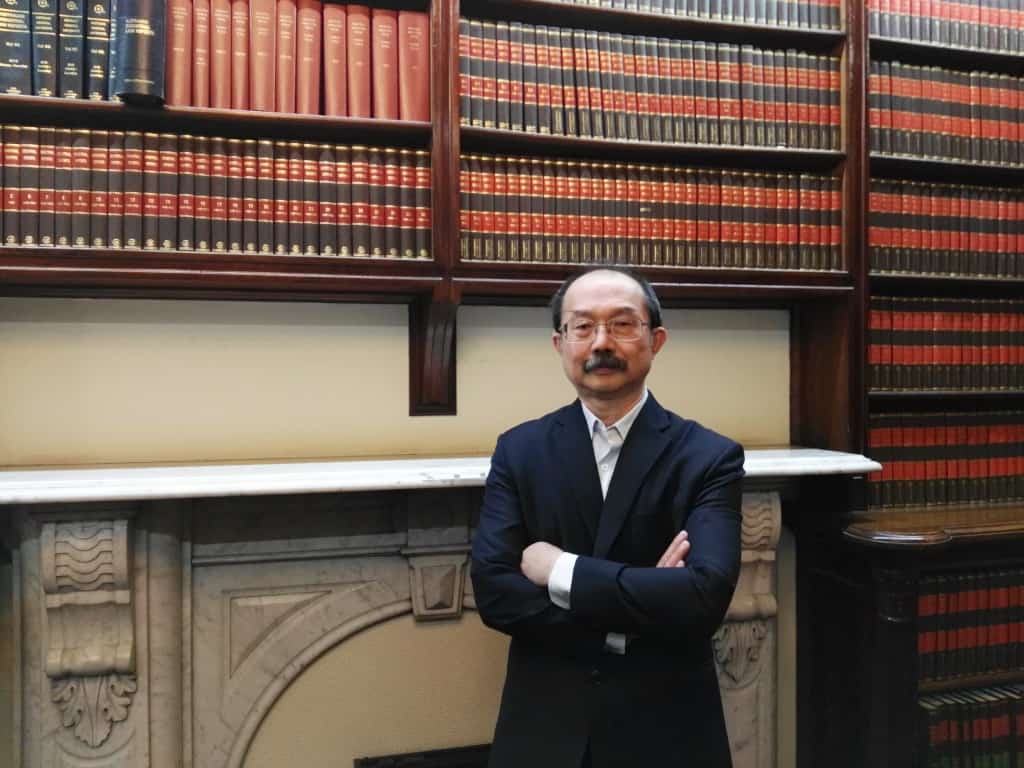
Permanent residence visa cancellation – the Department has the power to cancel a permanent residence visa (click here to learn more about Subclass 155 RRV) for a number of reasons.
Permanent residence visa cancellation can be mandatory or “automatic” if you failed the character test under s. 501. What this mean is, the Department will proceed with your permanent residence visa cancellation then notify you. You will be given an opportunity to convince the Minister (the Department) why the cancellation should be revoked.
Permanent residence visa cancellation can be discretionary if you, for example, provided incorrect information or answer in a visa application under s. 109. In this case, the Department will provide you with a Notification of Intention to Consider Cancelling (NOICC) your permanent residence visa. If you received a NOICC, you explain to the Department why your permanent residence visa should not be cancelled.
This article will only discuss mandatory permanent residence visa cancellation (click here to learn more about discretionary permanent visa cancellation).
Mandatory permanent visa cancellation
If you are serving a 12 month or more jail term, the Minister will cancel your permanent residence visa under s. 501(3A) before informing you that you may request the Minister to revoke the cancellation under s. 501CA(4). The Minister may revoke the cancellation if you make representations and the Minister is satisfied that you pass the character test (as defined in s. 501(6)). If you failed the character test, the Minister must consider if there is another reason why the cancellation should be revoked (s. 501CA(4)(b)).
If the Minister refused to revoke your permanent residence cancellation, you can apply to the AAT. The Tribunal is required by s. 500(6L)(c) to publish its decision within 84 days.
Direction No. 79 – ‘another reason’
The principles of Direction No. 79 emphasise the fact that entry into, and the right to remain in Australia is a privilege and that you are expected to abide by the law and not cause harm to the Australian community. Non-citizens who commit serious crimes should generally expect to be denied the privilege of entering or remaining in Australia and that Australia has a low tolerance of serious offending by those who only have participate in, and contribute to, the community for a short period of time. Credit is given to those who have made a positive contribution to the community, especially over extended periods of time, and that the impact on minor children and immediate family members of your forced removal.
Crimes against women, children or vulnerable members of the community are identified as being of a particular serious character.
Direction No.79 primary considerations are:
- protection of the Australian community from criminal and other serious conduct;
- the best interests of minor children in Australia; and
- expectations of the Australian community.
Whether your permanent residence visa cancellation will be revoked depend, among others, the nature and seriousness of your conduct and the risk to the community if you were to commit further offences.
“Other considerations” may include:
- international non-refoulement obligations;
- strength, nature duration of ties;
- impact on Australian business interests;
- impact on victims; and
- extent of impediments if removed.
In considering whether your permanent residence visa cancellation should be revoked, the Tribunal must determine whether or not ‘another reason’ exists as set out in ministerial Direction No. 79.
Direction No. 79 lists 3 ‘primary’ and 5 ‘other considerations’ which must be addressed by the Tribunal. You should note that “primary” considerations are not necessarily given more weight than “other” considerations (Suleiman v MIBP [2018] FCA 594 [23]-[26]; Minister for Home Affairs v HSKJ [2018] FCAFC 217 [24] and [37]. The Tribunal has absolute discretion regarding the ‘choice of, and weight given to’ the material (Aporo v MIAC [2009] FCAFC 123 at [45]. The Tribunal is entitled to accept or reject weight to be given to the evidence (Lee v MIMIA [2005] FCA 464 at [27]). The weighing of various pieces of evidence is a matter for the Tribunal (MIAC v SZJSS [2010] HCA 48 at [33].
Evidence to support revocation of permanent residence visa cancellation
- Clinical psychologist’s report with tests (e.g., psychometric) that determine the probability of your reoffending, factors (e.g. your age, gender, marriage, children, social ties, accommodation, employment, type of offence and your prison sentence) that are protective against your reoffending, impact of your deportation on yourself and your family.
- Character statements from friends, colleagues, supervisor who are aware of your offending
- Sentencing Judge’s remarks, whether your offending is at the bottom range of objective seriousness, whether you have demonstrated contrition and remorse, whether you are a willing or reluctant participant in the criminal activities, whether you have a low risk of reoffending (recidivism), whether you have a good prospect of rehabilitation, whether there are any special circumstances such as children, whether you are a person of good character before offending.
- The impact of the harm caused by your offending to the victim and the community
- Indication of any trend of increasing seriousness of your offending
The question of the risk of reoffending (recidivism) must be addressed by consideration of what expect opinion is (Vu and Minister for Immigration, Citizenship, Migrant Services and Multicultural Affairs (Migration) [2020] AATA 2876 (13 August 2020) at para 70).
The starting point is the remarks by the sentencing Judge (e.g. what motivate you to commit the offence, whether you voluntarily or forced to commit the offence, whether you had shown remorse and contrition, and your prospect of rehabilitation).
Next, the assessment made by the officer of Corrective Services (usually given to the Court as a sentencing assessment) detailing, among others, your character and behaviour while in custody.
The next expert opinion is your treating clinical psychologist outlining your risk of reoffending.
You should note that the decision-maker is “not under an obligation to evaluate in any particular way the risk of harm to the Australian community” of you reoffending (Coker v MIBP [2017] FCA 929 at [58] and [62]). And there is no “prescribed formula” which a decision-maker must follow in this regard (BSJ16 v MIBP [2017] FCAFC 78 at [43]).
In deciding whether to revoke your permanent residence visa cancellation, the decision-maker has to take into consideration the best interests of minor children in Australia.
Best interests of minor children in Australia
The decision-maker must make a determination about whether the revocation of your permanent residence visa cancellation is or is not in the best interests of the children (can be your children or children of your relatives), where they are or would at the time when the decision is made, be under 18. If you have more than 2 children, the best interests of each child should be given individual consideration, to the extent that their interests may differ (VKTT v Minister for Home Affairs [2019] FCA 1018 at [22]; Minister for Home Affairs v Stowers [2020] FCA 407 at [60]).
You should provide evidence (e.g. letters or statements) that you have played any significant part in the children’s development, care or upbringing. And you should highlight any significant differences (e.g. social [health and education services], political and economic) between Australia and your home country.
Often the best interests of a small children are sufficient to tip the balance for the decision-maker to revoke the cancellation of your permanent residence visa (Vu and Minister for Immigration, Citizenship, Migrant Services and Multicultural Affairs (Migration) [2020] AATA 2876 (13 August 2020) at [120]).
Expectations of the Australian community
It is important to know that it is not for the decision-maker to make his or her own assessment of the community expectations and to give that assessment weight as a ‘primary consideration” (FYBR v Minister for Home Affairs [2019] FCAFC 185 at [67]). In short, it is not the decision-make who makes an assessment of community values on behalf of the community. Community expectations are simply, and informally expressed as “if you break the law that will be held against you, the more serious the breach the more it will be held against you, and it may even be decisive. What this mean is that, if you committed serious criminal fences giving rise to character concerns should have your visa application refused or cancelled. If you have committed a serious offence, the expectations of the Australian community weigh against you. Community expectations are not necessarily punitive or seem to be punishing you a second time for a crime that you have already paid a price by been imprisoned (Waits and MIMIA [2003] AATA 1336 at [36]). Usually people should be given a second chance and a chance at rehabilitation is something which is quintessentially Australian (Dang and Minister for Home Affairs (Migration) [2018] AATA 2095 at [91]).
However, it is a matter for the decision-maker to assign the weight to that negative conclusion that he or she sees fit. Nevertheless, the community has a low level of tolerance for criminal offending behaviour which is to be balanced against being given a second chance. Often the expectations of the Australian community will only be given marginally against the revocation of your permanent residence visa cancellation.
Other considerations
You should note that “other” considerations are not taken as “lesser” but rather simply as “non-primary”.
Other considerations often include, but not limited to:
- International non-refoulement obligations
- Impact on Australian business interests;
- Impact on victims.
Strength, nature and duration of ties
You should emphasize and describe the time you have spent in Australia. If you were to argue the potentially negative effect upon your family members should you be deported, you must provide evidence of such impact.
Extent of impediments if deported
This is more difficult for the decision-maker to assess. Nevertheless, you should explain the difficulties you may encountered if your are returned to your home country. Losing of face if you are deported will not be given weight in favour of revoking your permanent residence visa cancellation.
What is importance is your potential separation from your children or partner if they are unable to return with you if you are deported.
Please note that Direction No 79 is replaced by Direction 90, click here to learn more.
To learn whether long-term permanent residents can be deported, please click here.
To learn more about section 501(2) visa cancellation on character grounds, click here or to learn more about section 501 refusal and cancellation of visa or PR and visa cancellation for failing the character test.
Australian migration law is complex and difficult to understand, contact our immigration lawyer for a consultation (fee applies) to help you to understand how you can prevent your permanent residence visa cancellation.

 041 222 4020 or WeChat: AUDvisa
041 222 4020 or WeChat: AUDvisa
This article is not intended to be or taken as migration legal advice. The author of this article disclaims any liability for any action or omission on the information provided or not provided in this article. You should always consult an immigration lawyer or a registered migration agent to form an informed opinion on your immigration matter.



